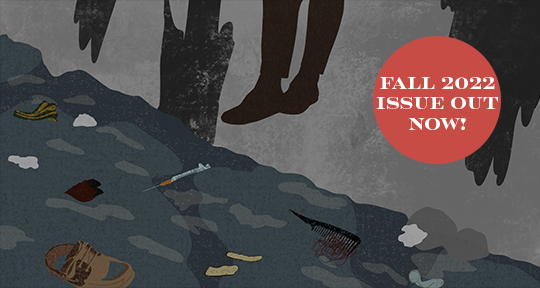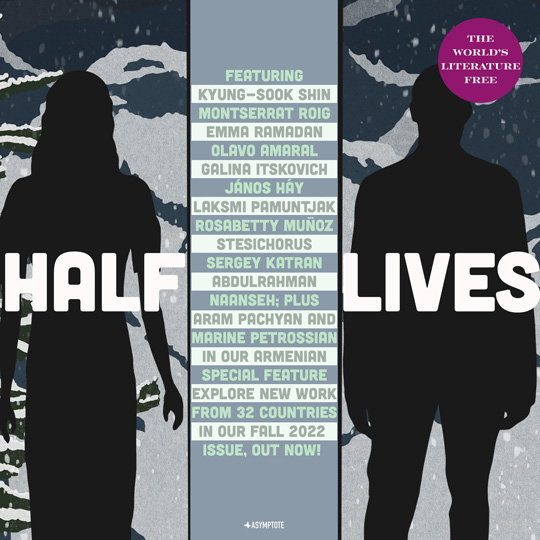In our Fall 2022 issue, we are presenting work ranging across thirty-two countries and nineteen languages, moving and shifting the demarcations of nation and language with the fluidity and imaginative capacities of language. Here, blog editor Xiao Yue Shan presents a roadmap through some of the most moving, exciting content encased within this latest release, including a text from our feature on Armenian literature, an essay on the “job” of writing from Catalan writer Montserrat Roig, and a Indonesian fiction of human distances—colonial, geographical, and carnal.
In every country there is a river, along the banks of every river there are people, and within the minds of each person there persists a single heartbeat of a mind that begins, as they situate themselves along the river, to pulse with that river’s inimitable current, to infiltrate that moment of flow with a different rhythm, that which they have carried with them and now relieve into the waters, and the water does what it does—it merges. In Aram Pachyan’s fluid, lyrical excerpt from P/F, translated sensitively from the Armenian by Nazareth Seferian, this instance of communion is fortified with the author’s masterful command of oratory and soliloquial language, iterating a return to faith “. . . like the prodigal son, sitting on your rib seeing my salvation in your murky waters, my peace in your obscurity, the lymph of life still gurgling in your grime.” The excerpt demonstrates not only the immense living intelligence of inhuman bodies, but also their pivotal and profound point of contact with human emotion—grief, loneliness, resolution, and hope. P/F is described as a text that swims in memory, and even in this brief extract we are afforded a wide-ranging glimpse at memory’s infinitely mutable potentials, of the seeds of experience which exponentiate into monuments of time, equally deceptive as it is formative, equally polluted as it is seeking of purity, and ever-changing even as it attempts to convince us of its sameness. In long, ranging lines melding concrete situation with poetic abstractions, Pachyan begins to tells us of this river:
This is not the Euphrates, nor the Tigris; not the Seine, the Thames, the Danube, nor the Po. The Getar has no bloodline in common with the daughter of the ocean, the Styx that flows in the land of Hades. The gods have not taken any oaths on its waters. There are no emphatic proverbs about it, no books or odes. It is left out of all possible discussions, it is off the planet’s axis.
And still it flows, merging what is cast in with what is hidden in its depths, and it is this movement that reminds us of the eternal sanctuary, in cities and villages alike, where one can stand and watch one thing become another, to watch time become memory and memory urge back to feed once again into time, and find in this merging some solace. READ MORE…




